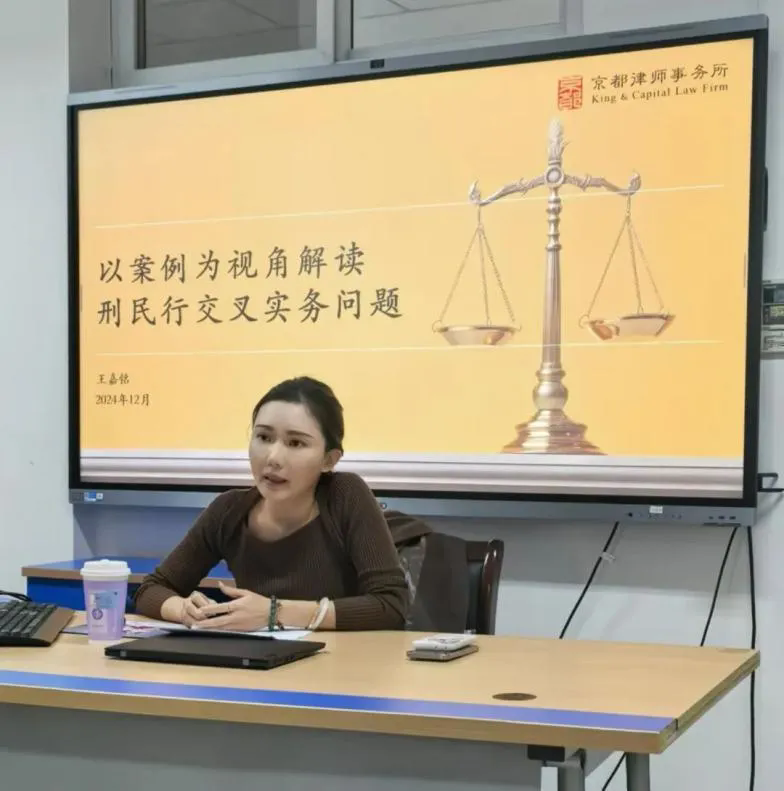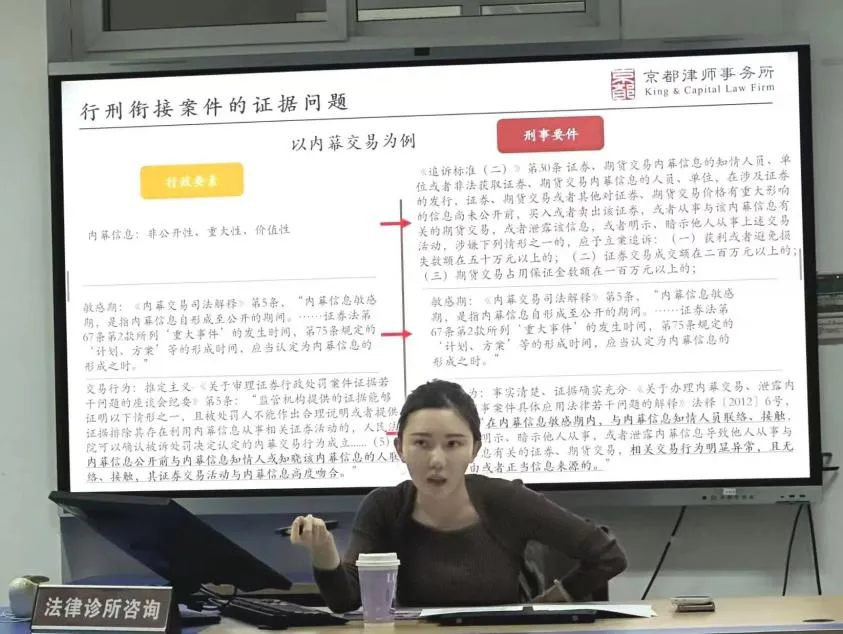On the afternoon of December 11, 2024, Mr. Wang Jiaming, a partner of Beijing Kyoto Law Firm, was invited by the Law Department of Beijing Union University to give a wonderful lecture on “Interpretation of criminal, civil and administrative cross-practice issues from the viewpoint of cases” to the students of the Law Department of Beijing Union University. The lecture was hosted by Ms. Li Xiaoli, and attended by the 24th grade law (LL.M.) master students of Beijing Union University.

At the beginning of the lecture, Mr. Wang Jiaming took typical cases such as “Lu Yong's fake drug case”, “Parrot case” and “Wang Lijun's illegal business case” as the starting point, and revealed that with the development of the times, criminal cases have become a cross-cutting issue of criminal and civil law. With the development of the times, the criminal case presents the trend of cross-complexity of criminal and civil behavior. Afterwards, Mr. Wang started from the new type of criminal cases he handled in his work, analyzed in detail the legal relationship and criminal and civil liability behind the cases, and shared the logic of defense in the handling of the cases.
After that, Mr. Wang introduced the evidence issues involved in the case of the convergence of execution and punishment by taking the case of insider trading as an example. Ms. Wang pointed out that the evidence issue is the key to the case of the convergence of execution and punishment, and lawyers should fully utilize their professional knowledge when dealing with such cases, and scrutinize the evidence to ensure that the case is handled in a just and fair manner. She combined with her years of practical experience, shared some insights in the process of handling cases. Ms. Wang explained in a concise manner that the current procedure of the convergence of execution and punishment in China is difficult to adapt to the handling of cases of intersection of execution and punishment in practice, such as the inconsistent application of procedures, inconsistent standards of evidence, and imperfect collaborative mechanism, which inspired students to think more deeply about the cases of intersection of criminal, civil and criminal lines.

At the end of the lecture, Mr. Wang encouraged the students to think positively, practice more, combine what they have learned in the classroom with practical use, and strengthen the legal logic and accumulation of case experience. The lecture was rich in content and in-depth. With his profound professional knowledge and rich practical experience, Mr. Wang broadened the students' legal horizons and stimulated their enthusiasm for legal study and research, which is of great significance to their future legal career development.



